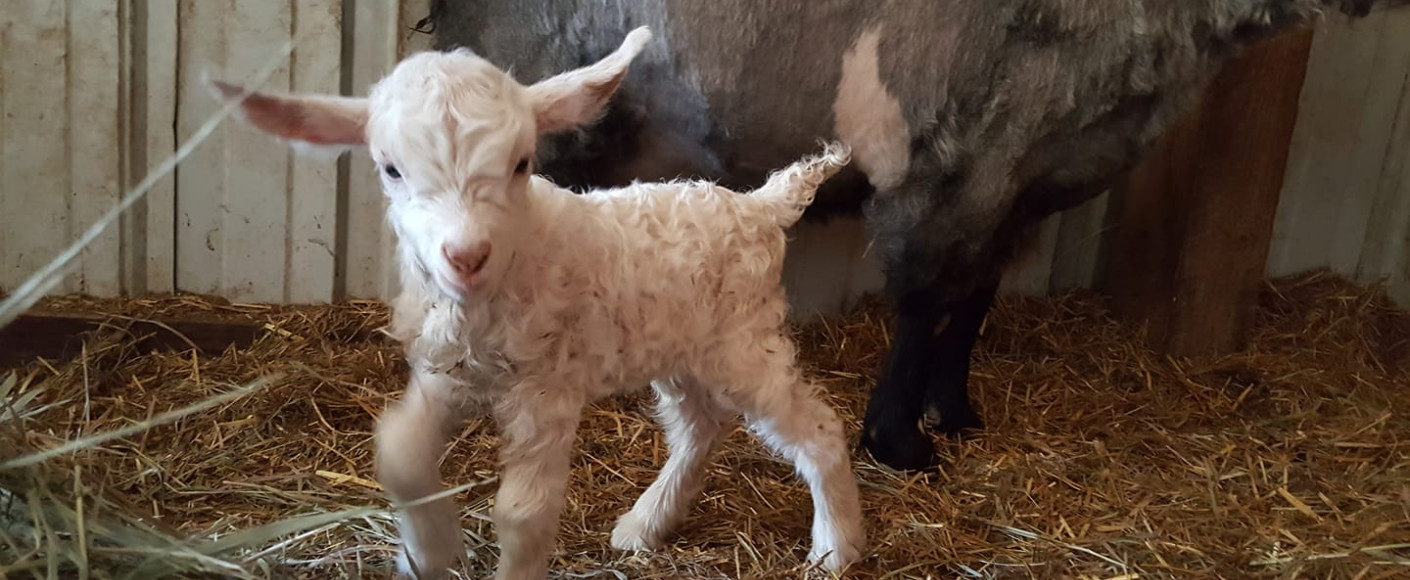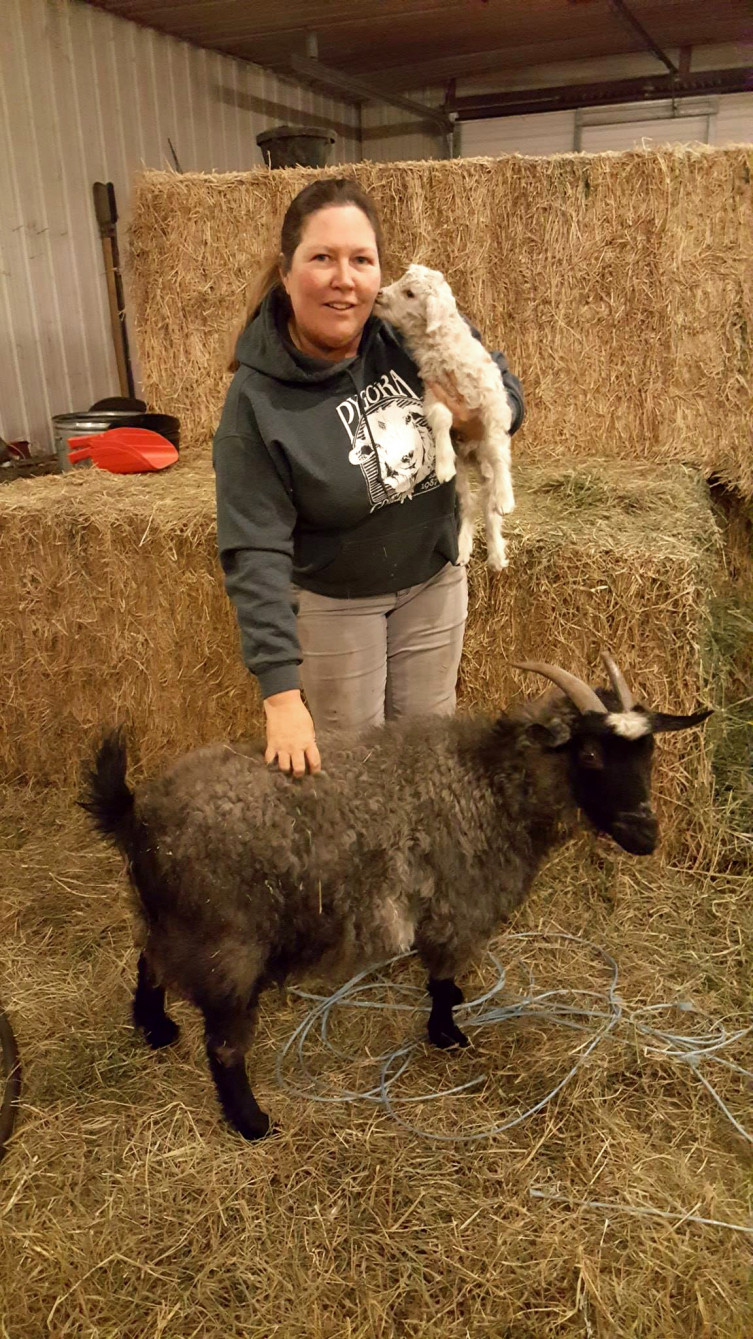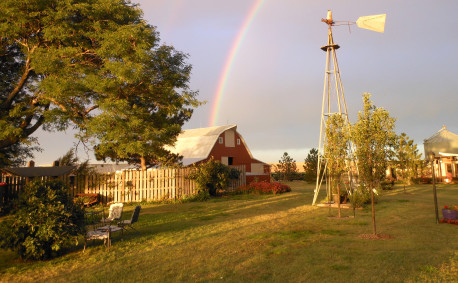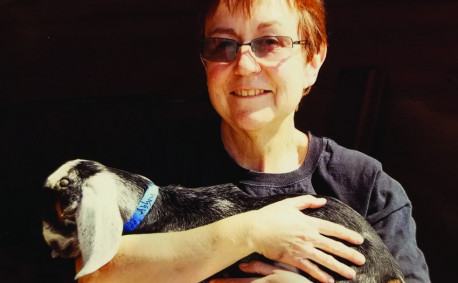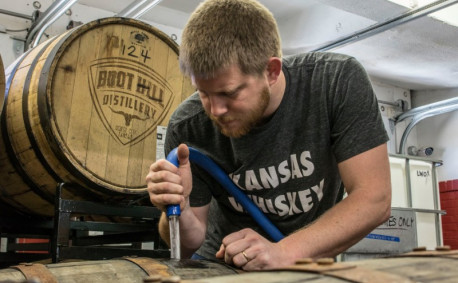A Dream Takes Shape at Kansas Fiber Farm
Have you ever fantasized about living on a small hobby farm — someplace to settle down where you could grow your own food and live self-sufficiently?
The McGees did, and they’re making that dream come true. Both Collen (pronounced KAW-leen) and her husband Mike are veterans who currently work for the government. They wanted a place to call their own as they approach retirement, which is why they moved to Kansas about five years ago.
“We wanted to get a little dirt therapy and have some peace,” Collen said.
Before the move, they were living in San Antonio and focusing their job hunt on rural areas. One Friday afternoon they drove to Abilene, Kan., to look at some property.
“We looked at each other and said, ‘We could live here,’” she said.
They made an offer on the farm that day and their dream started to become reality — Rowantree Farm was taking shape.
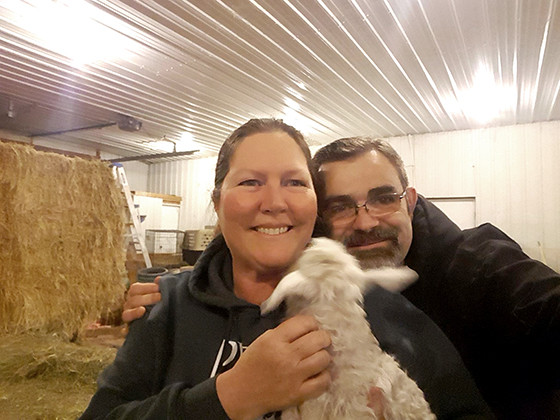 “The first year we just watched what the property would do,” Collen said.
“The first year we just watched what the property would do,” Collen said.
They simply observed, noting where the land drained as they figured out the best place to put a garden. There wasn’t any fencing, so they started putting some in. They got chickens for fresh eggs. (“Chickens are the gateway to farming,” she said.) Coyotes started going after the chickens, so they got donkeys to keep the coyotes away.
Collen carefully researched options of what they could put on their farm from there. She wanted to find something unique to the area because she didn’t want to compete with her neighbors. She decided to produce fiber.
“My mom got me into fiber. It’s a unique niche,” she said.
Collen and Mike decided to breed and raise Pygora goats. Pygora goats are a cross between pygmy and angora goats. They’re known for producing incredibly soft fiber — as soft as cashmere, Collen said — and they’re small. The does only come up to the knee, the bucks a little higher. That was important because Collen and Mike wanted to be able to manage the farm comfortably as they got older.
“We wanted animals that were small enough that we could handle in retirement,” she said. “These goats are very, very sweet.”
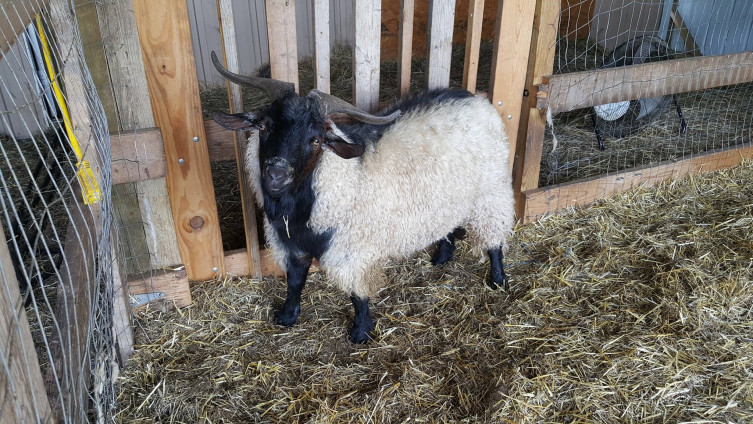 They bought three goats from breeders in Iowa and Kansas to add some genetic diversity. They brought their first goat home May 25, 2016 — the day an EF4 tornado hit the area. It was a tough experience for the goat, and the McGees.
They bought three goats from breeders in Iowa and Kansas to add some genetic diversity. They brought their first goat home May 25, 2016 — the day an EF4 tornado hit the area. It was a tough experience for the goat, and the McGees.
“He would not leave my hip and he’s been on my hip since then,” Collen said.
As their herd grows — they’re at 13 and counting with several does expecting — so has their fiber production. Collen remembers their very first sale. It came just four days after they finished their paperwork and got their tax identification numbers.
“It was a $100 sale for fiber and we were so excited,” she said “I love producing fiber and making yarn. That’s my superpower.”
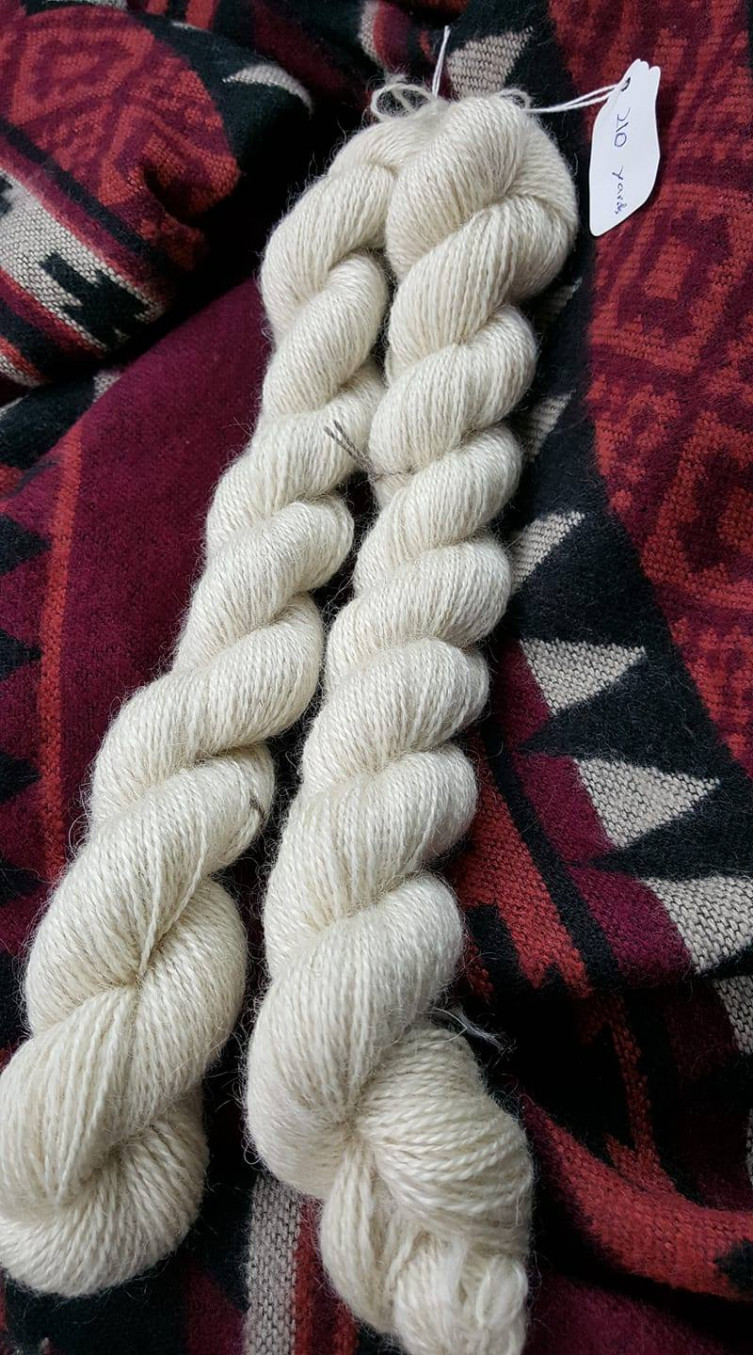 However, there are challenges. Pygora goats must be sheared twice a year. Shearing is expensive if you hire someone else. The McGees shear their own. . There are only a few mills in the U.S. who process small fiber lots. The one the McGees use is one of two in Kansas. The processing can take six to nine months. It’s an expensive, time-consuming operation. So, Collen and Mike now have their minds set on putting in a fiber mill at the farm to help them and other small fiber producers.
However, there are challenges. Pygora goats must be sheared twice a year. Shearing is expensive if you hire someone else. The McGees shear their own. . There are only a few mills in the U.S. who process small fiber lots. The one the McGees use is one of two in Kansas. The processing can take six to nine months. It’s an expensive, time-consuming operation. So, Collen and Mike now have their minds set on putting in a fiber mill at the farm to help them and other small fiber producers.
“There are so many people who have alpacas and so many different kinds of sheep. We want to be able to help, to provide a couple of decent jobs in the area and fill that niche with locally produced yarns,” Collen said.
They also have their sights set on other niche areas — growing hazelnuts (which grow anywhere, can help serve as windbreaks on the farm and are delicious), building a small store on their property, making their own spinning wheels, creating a guest house for visitors and growing wine grapes. Mike also built a tumbler to help clean the fleece faster.
Their lovely philosophy is that they’ve been growing their farm in “five-minute increments.”
“You can’t do everything. You’ve got to do what works for you,” Collen said. “We’re all about being as self-sufficient as we can be — learning how to do it from scratch, the way our grandparents did it.”
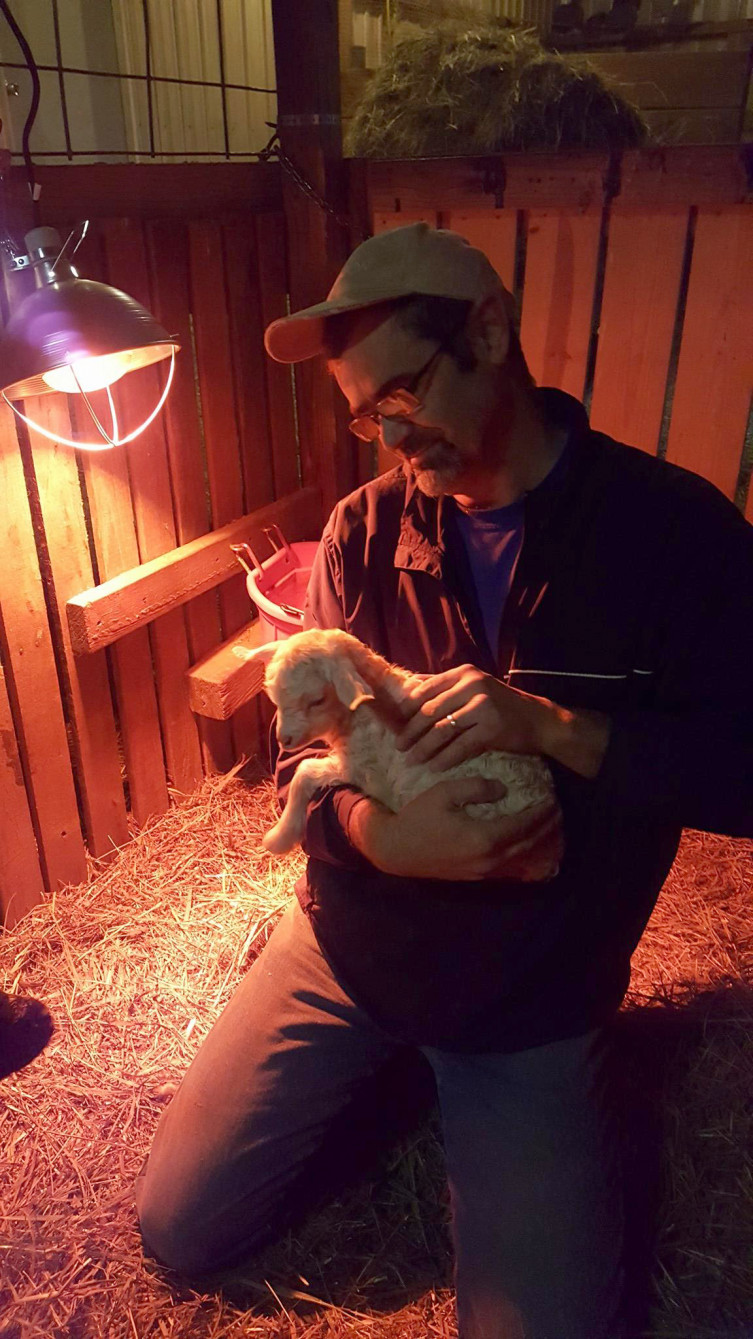 Collen said this adventure was about making a life together with her husband.
Collen said this adventure was about making a life together with her husband.
“We’re building memories for ourselves and our relationship at the same time,” she said. “We go out early in the morning to milk a few goats, look up and see stars in the sky and have delicious milk. We both feel so rewarded to look at what we’ve accomplished together.”
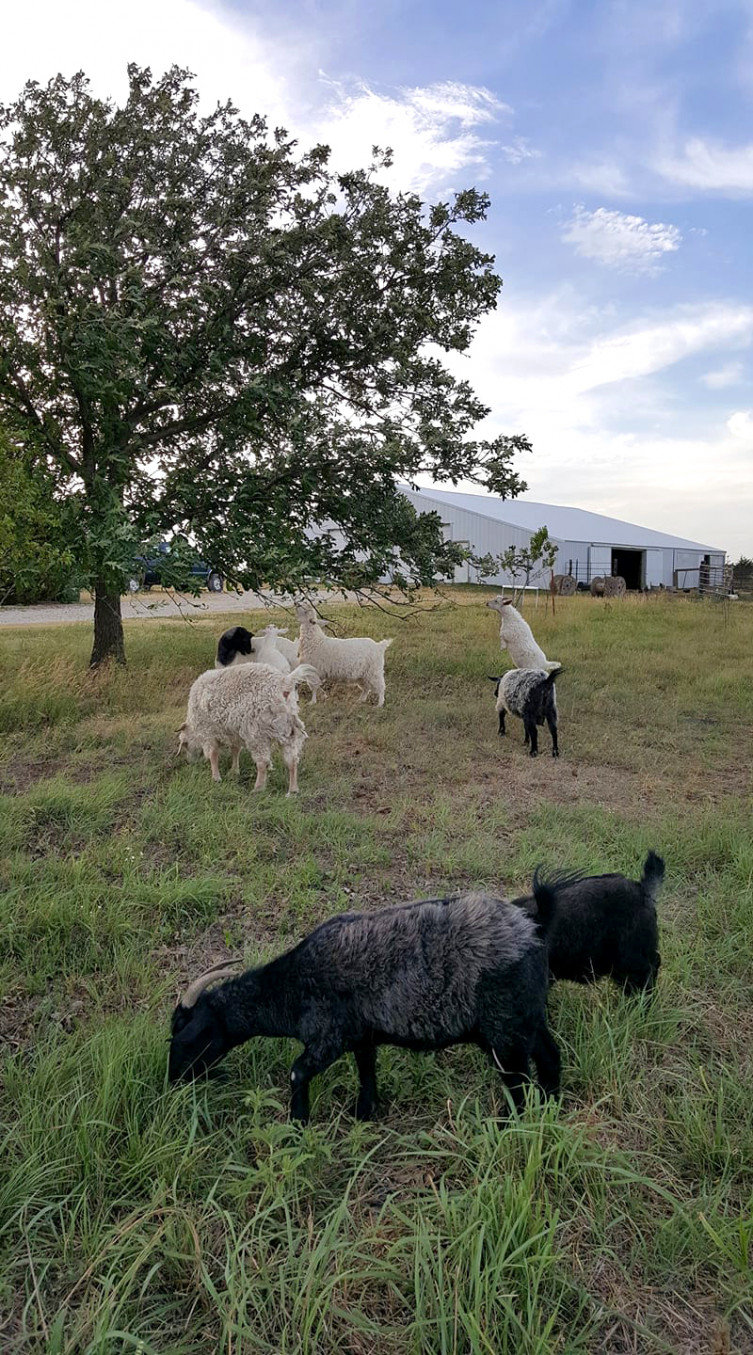 Each year Rowantree gets a little bigger. They now have chickens, donkeys, the Pygora goats, guinea fowl, rabbits, Angus cattle (just a small cow-calf operation to provide meat for themselves and the occasional sale), cats and dogs. Last year they added babydoll Southdown sheep to their brood.
Each year Rowantree gets a little bigger. They now have chickens, donkeys, the Pygora goats, guinea fowl, rabbits, Angus cattle (just a small cow-calf operation to provide meat for themselves and the occasional sale), cats and dogs. Last year they added babydoll Southdown sheep to their brood.
“The sheep were so cute, I just loved them. I couldn’t help it,” Collen said.
They love sharing their farm with others and have hosted groups like home-schoolers and scouts, providing tours and demonstrations. Collen invites folks to come see what their farm is all about.
“If anyone wants to come visit and see for themselves, I’m open to them coming and taking a look,” she said.
And if you can’t swing a visit, you can always follow Rowantree Farm on Facebook.

